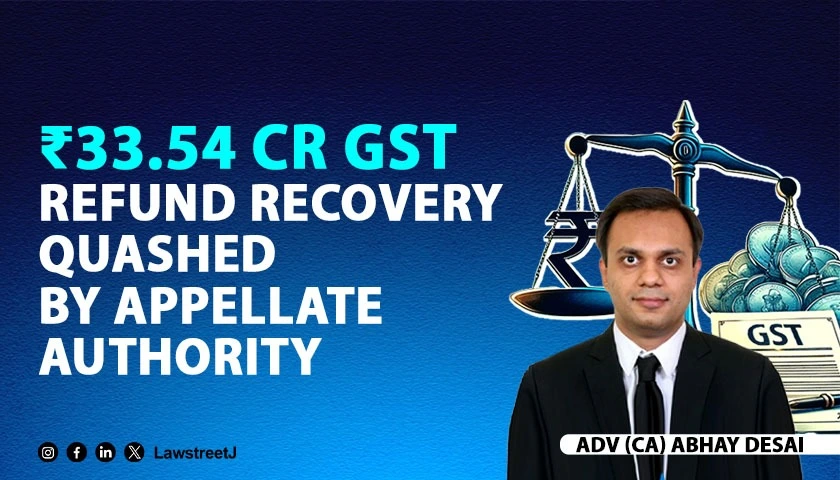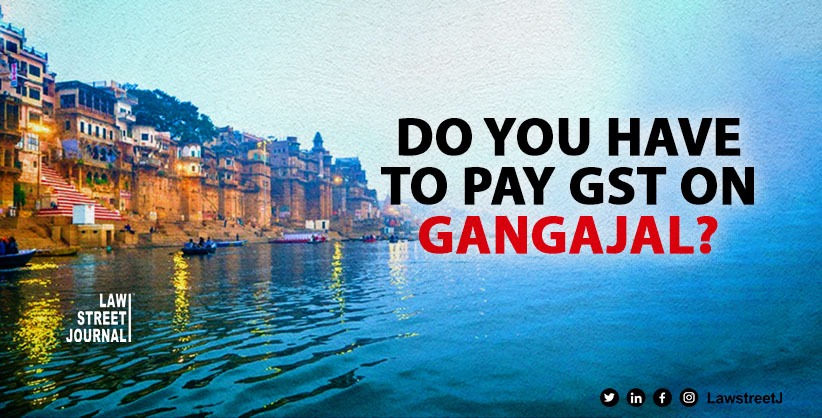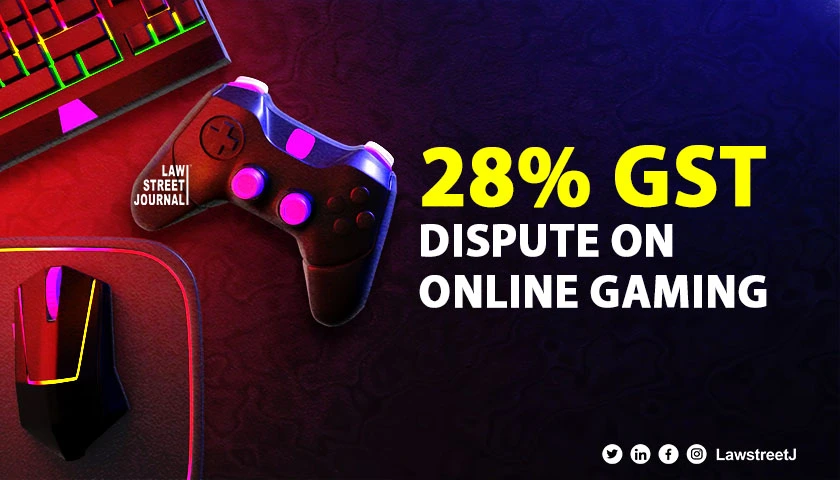Gujarat: The Office of the First Appellate Authority, Vadodara, has set aside an order demanding recovery of ₹33.54 crore in GST refunds along with interest and penalty from M/s. Kaizen Switchgear Products. The Ld. First Appellate Authority held that refunds sanctioned under Rule 89(4) of the CGST Rules, 2017 cannot be said to be invalid merely on the ground that they ought to have been claimed under Rule 89(4A) or Rule 89(4B). It quashed the recovery order, including interest and penalty. The matter was represented by Desai Legal – Advocates & Solicitors.
The Authority observed that refunds already sanctioned could not be reversed solely on the basis of a technical or procedural classification under a different rule when the substantive eligibility was not in dispute.
M/s. Kaizen Switchgear Products, a 100% Export Oriented Unit (EOU), had filed an appeal against Order-in-Original No. VAD-GST-001-ADC-029-2024-25 dated 10.09.2024, passed by the Additional Commissioner, Central GST & Central Excise, Vadodara-I.
The impugned order had confirmed recovery of an allegedly erroneous refund amounting to ₹33,54,75,946 under Section 73(9) of the CGST/GGST Act, 2017, read with Section 20 of the IGST Act, 2017; dropped the demand of ₹2,36,51,832 under the same provisions; confirmed interest under Section 50(1); and imposed a penalty of ₹3,35,47,595 under Section 73(1) read with Section 122(2)(a) of the CGST/GGST Act, 2017 and Section 20 of the IGST Act, 2017.
The appellant contended that the sanctioned refund could not be recovered merely due to procedural lapses, especially when the eligibility for refund remained undisputed. They argued that Rule 89(4) and Rule 89(4B) are alternative mechanisms for computing refunds under Section 54(3)(i) of the CGST Act, and not separate categories of claims. Therefore, even if Rule 89(4B) were to apply, they would remain eligible for a refund equal to or greater than what was sanctioned under Rule 89(4). They emphasized that recovery without first challenging the original refund sanction orders is impermissible.
Referring to the Gujarat High Court’s decision in Filatex India Ltd. and other rulings, the appellant maintained that refunds cannot be denied or reversed solely on the basis of having quoted the wrong provision.
The Appellate Authority observed:
“On going through the records of the case, it is seen that the appellant exported goods without payment of IGST under LUT/Bond and claimed refund of accumulated ITC under Rule 89(4) of the CGST Rules, 2017.”
The department had argued that as a 100% EOU availing benefits under Notifications 48/2017-CT and 78/2017-Customs and 79/2017-Customs, the appellant should have filed claims under Rule 89(4B), not Rule 89(4).
The Authority, however, reviewed Section 54(3)(i) of the CGST Act and related rules, and held:
“The legitimate claim cannot be denied merely on the ground that the appellant had filed their refund claim under a different provision. It should have been considered a procedural or technical lapse, not a substantive violation of law.”
It further noted:
“The fact in the instant case is that the goods were exported under LUT/Bond and there was unutilized accumulated ITC on account of zero-rated supplies without payment of tax under LUT or Bond. Mere quoting of a wrong rule does not invalidate the right to refund.”
The appellant had furnished detailed calculations for all 42 refund claims, supported by Cost Accountant certificates. The authority found that under Rule 89(4B), the appellant was actually eligible for a higher refund than what was sanctioned under Rule 89(4). Specifically, for 36 tax periods from July 2019 to July 2022, they were eligible for ₹33,76,29,307 under Rule 89(4B), compared to ₹33,54,76,053 already sanctioned.
The order also referred to the GST Council’s 54th meeting recommendation to omit Rules 89(4A) and 89(4B) to simplify refund procedures. This was implemented via Notification No. 20/2024-CT dated 08.10.2024, making Rule 89(4) the sole applicable provision for refunds in such cases.
The Authority emphasized that all refund claims were regularly sanctioned under Rule 89(4) without objections, and had already undergone post-audit and review processes.
Citing Filatex India Ltd. v. Union of India, 2023 (69) G.S.T.L. 353 (Guj.), the Authority noted that the Gujarat High Court directed adjudication based on Rule 89(4B), considering the input-output ratio in exports.
Based on these findings, the Appellate Authority concluded:
“As the demand of ₹33,54,75,946 under Section 73(1) of the CGST Act, 2017 read with Section 20 of the IGST Act, 2017 is not sustainable, the question of interest under Section 50(1) and penalty under Section 73(1) read with Section 122(2)(a) does not arise; hence, both are liable to be set aside.”








![Tax Department Should Allow Amendments in GST Forms, Make Filing System More User Friendly: Bombay High Court [Read Order]](/secure/uploads/2023/12/lj_2208_Make_GST_filing_system_user_friendly.jpg)

![Biba's plea against GST demand of Rs 56 lakhs to be reheard by Dept: Delhi HC [Read Judgment]](/secure/uploads/2024/04/lj_1951_WhatsApp_Image_2024-04-10_at_6.50.05_PM.jpeg)






